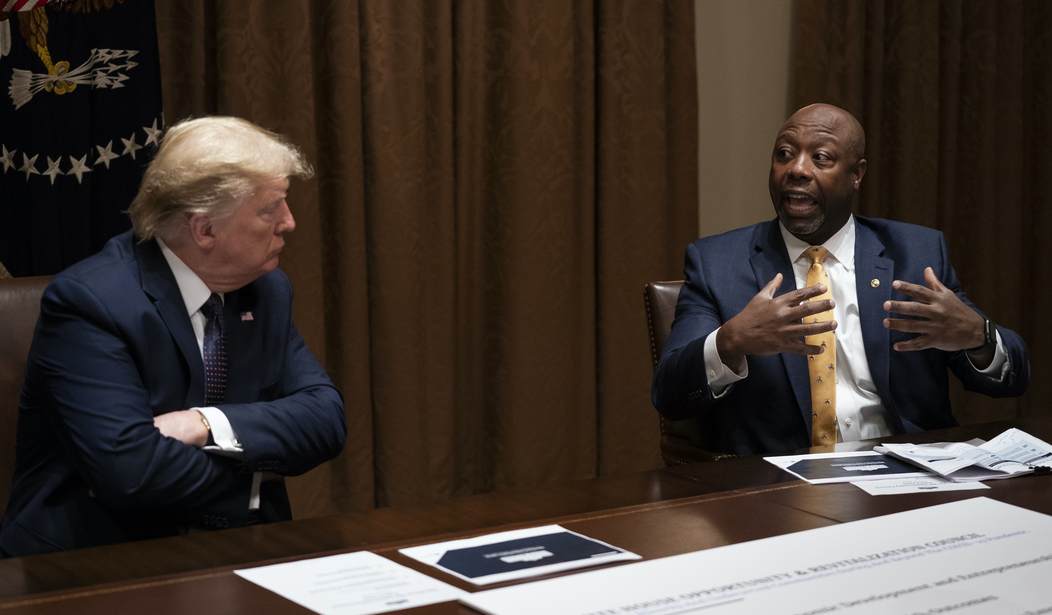Call me the 1617 Project.
Yep, that’s the year my first ancestor born on these then-wild and woolly shores saw the light of day in the touch and go environment of the Jamestown Colony.
You’re not supposed to say things like this—but I am proud of Temperance Bailey Cocke. At the age of six, Temperance cheated death by hiding out at Jordan’s Journey, a settlement upriver from James Fort, while Powhatan engaged in a historic massacre. As a result, voila--here I am. Can’t thank you enough, Temperance, you brave gal, you!
On behalf of Temperance and other intrepid colonial souls, I’ve been privately seething about the New York Times’ infamous 1619 Project. It’s a crock and a libel. More than that, it is designed to make us hate our country. How can one serve a country one doesn’t love?
The 1619 Project, as I feel certain you know by now, had the ambitious goal of “reframing” American history and placing our “true founding” in 1619 with the arrival of a ship bringing the first slaves to America. The project goes further though to suggest that slavery alone shaped the United States and racism is in our DNA. The New York Times is eager to push this message on school children; selling a 1619 curriculum for classroom use. This may be the reason why Nikole Hannan-Jones, the guiding spirit behind 1619, has tried to give herself wiggle room, claiming, rather unconvincingly, that she was being “metaphorical” in speaking of 1619 our “true founding”.
Nevertheless, Hannah-Jones was onto something: 1619 really is crucial to the American Founding—just not in the way the 1619 Project imagines. While 1619 doesn't rival 1776 as the American Founding, 1619 is a seminal date in our history, because that was the year the Virginia House of Burgesses, which was the first elected assembly in the American colonies, first met in Jamestown. It serves as proof that instead of Lord of the flies, the small and imperiled Jamestown colony had a representative government that first met in a little Anglican church. Yes, slavery came in 1619, regrettably, but so did representative government. An honest 1619 Project would have acknowledged this. (By the way, Temperance’s husband, Richard Cocke, lawyer and planter, sat in the House of Burgesses.)
Recommended
The Jamestown colonists came to build a new world and, not incidentally, prosper. Captain John Smith was the quintessential Jamestown colonist: colorful and politically incorrect (he is reputed to have beheaded an Ottoman Turk in his mercenary days) but essential: he hit upon the saving formula to rescue the colony in the “The Starving Time” by decreeing that those who did not work would not eat. He ended communal property holding. Very American.
The hatred of Jamestown, and indeed our entire history altogether, as most clearly displayed in The 1619 Project, partly grows out of Critical Race Theory (and bad scholarship, of course, as the respected historians who pointed out how fact-challenged it is, amply have demonstrated).
Critical Race Theory, which now dominates academia as certainly as the Scholastics did in medieval European universities, teaches us that we must despise the people who toughed it out in the wilderness and helped lay foundations for the most generous country in history. It is all the more insidious because, since we have remedied many (but not all) ramifications of slavery, it turns to “microaggressions”-- those tiny acts one does to insult another race or gender--a side glance, a double take, a seemingly innocuous question.
With microaggressions, there is no endgame—you can go on ferreting out more and more new grievances until the end of history. As a philosophy, CRT honors no objective reality other than the reality of “systemic racism.” It is barbarian and loveless and there’s no chance for redemption or forgiveness. It deprives us of our rightful heritage. After all, we are all, if we care to be, as Americans, sons and daughters of Jamestown and Plymouth, 1776 and 1789.
Every year, I go to a luncheon and raise a glass to the Jamestown colonists. I find myself in a cozy room with high ceilings and free-flowing wine. And as we make our toast, I always think, Jamestown was a damned miracle. It was never a sure thing. We shouldn’t even be here. But tough men and women gave us a future, and I love them for it.

























Join the conversation as a VIP Member